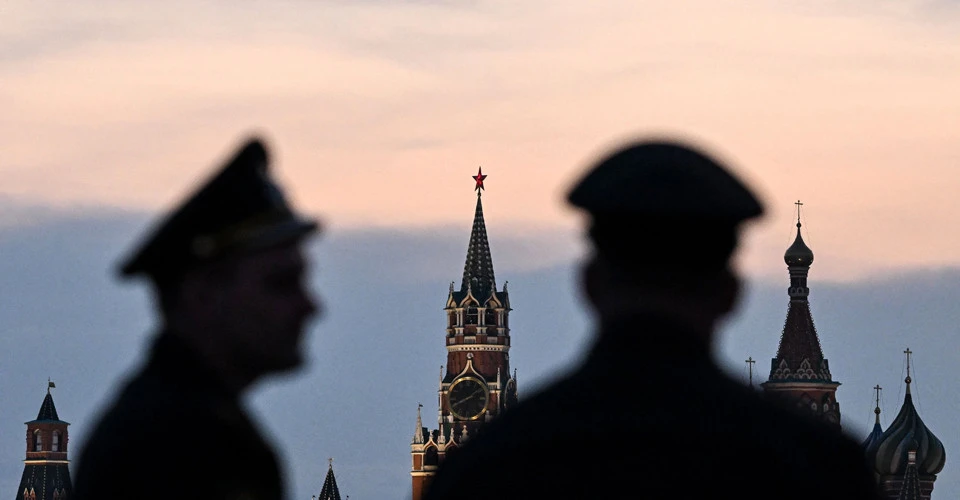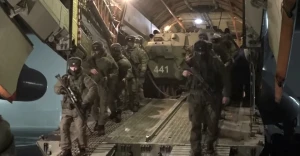
Kremlin blames Sweden for Poltava attack in move to justify aggression against Ukraine
On September 3, Russia attacked the Ukrainian city of Poltava, targeting a military educational facility. The number of casualties continues to rise as debris from the strike is cleared. It's confirmed that over 50 people were killed, and nearly 300 were injured
This is another bloody day in the ongoing war between Russia and Ukraine. However, while Ukrainians are bravely enduring this blow without involving others, Russians have launched a campaign to implicate a third country in the strike. This time, they targeted Sweden instead of the usual trio of the US, Britain, and Germany. But why?
To answer that question, let’s look at Sweden from a Russian perspective. What the Kremlin and its allies say can be quite different from reality. The government’s task is to declare certain objectives, while propagandists do most of the work, tailoring their message to a specific audience.
For example, after the Poltava strike, Kremlin-approved media (not foreign agents) immediately reported that the missile killed both Ukrainian soldiers and Swedish mercenaries. Since media policy in Russia is coordinated at the level of the Presidential Administration, this can't be seen as an accident.
Beyond official media, this narrative was also pushed by anonymous information channels linked to Russian intelligence services and pro-Kremlin bloggers, though most of them replaced "Swedish mercenaries" with "foreigners."
Let’s quote a fragment from one of these posts:
“This incident became significant due to the presence of foreign instructors, particularly Swedish specialists, who were supposed to train Ukrainian personnel to operate the ASC 890 early warning system. Sweden, having planned the delivery of these aircraft, is now facing the loss of its instructors. This will complicate diplomatic relations between Ukraine and Sweden and could lead to a review of plans to supply military equipment and support to Ukraine.”
This highlights the various goals Russian propaganda pursues in such texts. So, it’s crucial to understand that this isn’t just an internal matter for Russia.
The attacks on Sweden aren’t solely for domestic consumption. For the Russian public, simple historical revisionism would suffice. For instance, some segments of Telegram compared this incident to the Battle of Poltava, where Peter I defeated Swedish-Ukrainian forces. Although Swedish troops aren’t present in Poltava today, it didn’t stop Russia from "striking them."
Domestic audiences will accept any narrative from the right loudspeaker on social media. But here, we’re dealing with something more powerful and calculated. So, let’s move on to the next question:
Why is Russia trying to implicate Sweden in this war? What’s the benefit of this approach?
First, Sweden is valuable to Russian propagandists due to its support for Ukraine. The Swedes have agreed to supply reconnaissance aircraft to the Ukrainian Armed Forces. Russian media emphasize that personnel were being trained in Poltava for the use of these systems, even though it's publicly known that Poltava has long been a training center for Ukrainian signal troops, unrelated to the Swedish aircraft.
This allows Russia to justify the strike militarily and claim victory over Sweden, a country that isn’t even aware it’s involved in this conflict.
It’s worth noting that this propaganda tactic wasn’t invented by the Russians. It was first used on a large scale by American political strategist John Mearsheimer during the election campaign of Hungarian Prime Minister Viktor Orbán. He chose billionaire George Soros, who had no political ambitions in Hungary, as Orbán’s primary opponent. By focusing on Soros, Orbán sold his political agenda and won the election.
The same is happening here. It’s not enough for Russia to strike Ukraine. They need to justify it for domestic audiences to boost morale. Equally important is presenting this strike as a win on the international stage. For this, they need a target that won’t fight back, since it isn’t involved in the war.
The question “Why are Russian media targeting Sweden?” should be viewed in the context of overall NATO policy. Like Finland, Sweden joined NATO, but its behavior is distinct from countries farther from Russia.
Sweden entered NATO with a strong defense industry, producing a full range of military equipment, from aircraft to artillery. Geographically, neutral Sweden had left the Baltic states vulnerable to Russia. But with Sweden as an ally, Estonia, Lithuania, and Latvia gain a strategic stronghold in the Baltic Sea—Gotland Island.
Sweden’s defense industry and its ability to mobilize 850,000 soldiers, thanks to its conscription system reinstated in 2018, make it a significant player. This military strength was recognized long before Sweden joined NATO.
Russia knows which countries can be pressured and which are unprepared to resist, making its propaganda attack on Sweden something of a backhanded compliment.
Another important factor is Sweden’s realistic assessment of its situation. Swedish military leadership, like General Micael Bydén, personally visits Ukrainian frontline positions—something that sets Sweden apart from other European countries.
Russia’s interest in Sweden is also evident from its espionage activities. Swedish security services have warned that Russian sabotage on Swedish soil has increased, particularly targeting defense industry sites.
Cyberattacks are becoming more frequent across NATO countries, often tied to public events that seem unrelated to military matters, like Sweden’s Eurovision Song Contest. Russia has also been accused of preparing disinformation campaigns against NATO and Sweden itself.
These actions, from airspace violations to cyberattacks, are part of a broader campaign. Even Swedish intelligence chief Thomas Nilsson has identified Russia as one of the main threats to the country, a conclusion he reached back in February, well before the fighter jet incursion and numerous cyberattacks.
- News











































